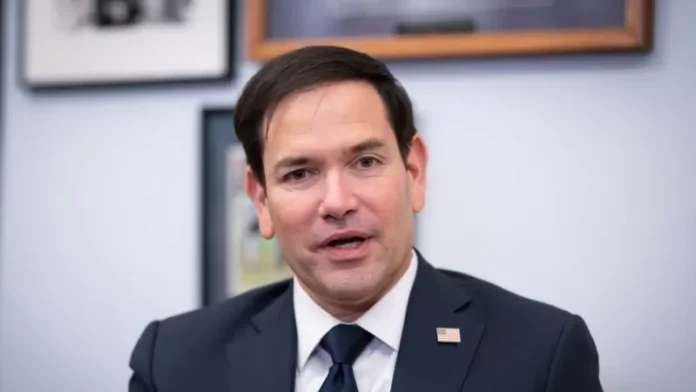Washington — Florida Senator Marco Rubio is set to become the next Secretary of State under President-elect Donald Trump’s administration. In his confirmation hearing on Wednesday, Rubio promised to implement Trump’s “America First” vision, vowing to prioritize American interests above all else.
Rubio, who was born in Miami to Cuban immigrants, will become the first Latino to serve as the nation’s top diplomat if confirmed. This marks a new chapter in the political career of the 53-year-old Florida Republican, whose relationship with Trump has evolved over the last decade. From once being rivals trading schoolyard insults during the 2016 presidential campaign, the two men have become close allies as Trump campaigned for another term in the White House last year.
In his opening statement obtained by The Associated Press, Rubio stated that placing core national interests above all else is not isolationism, but rather a common-sense realization that a foreign policy centered on our national interest is not an outdated relic. He also emphasized that the postwar global order is now being used as a weapon against the United States.
Rubio’s stance is a remarkable one, considering his background as a member of the “tea party” wave in 2010 and his previous advocacy for allowing a path to citizenship for immigrants in the country illegally. However, like many other Republicans, Rubio’s views on immigration have shifted towards the hardline stance of Trump, who has promised to take aggressive measures against illegal immigration once he takes office on Monday.
Unlike some of Trump’s other Cabinet selections, Rubio is expected to easily win confirmation, with support from both Republicans and Democrats who see him as a responsible pick to represent the U.S. abroad. Many anticipate that he will be among the first of Trump’s Cabinet picks to be approved.
Democratic Senator Brian Schatz, who served alongside Rubio on the Foreign Relations Committee, expressed his confidence in Rubio’s ability to reject the isolationist approach of other Trump allies. He described Rubio as a hawk and an internationalist, and believes that his instincts towards American strength will prevail in shaping U.S. foreign policy.
Rubio’s approach to foreign affairs is grounded in his years of service on the Foreign Relations Committee and the Senate Intelligence panel. In his speeches and writings, he has issued stern warnings about the growing military and economic threats to the United States, particularly from China. He believes that China has benefited from a “global world order” that is now obsolete and has “lied, cheated, hacked, and stolen” their way to global superpower status at the expense of the U.S.
If confirmed, Rubio will become the leader of U.S. foreign policy, although his role will likely remain secondary to Trump, who enjoys the global stage and often uses his platform to challenge America’s allies. Even before taking office, Trump has caused concern in foreign capitals by threatening to seize the Panama Canal and Greenland, and suggesting that he will pressure Canada to become the nation’s 51st state.
Rubio believes that Trump’s re-election has given him an unmistakable mandate from the voters, who want a strong America that is engaged in the world but guided by a clear objective to promote peace abroad and security and prosperity at home.
One potential point of contention between Rubio and the incoming administration is the recent decision by the Biden administration to rescind Cuba’s designation as a state sponsor of terrorism. Rubio, who has long supported tough sanctions on the communist-run island, has not yet publicly commented on the move. However, many believe that it will almost certainly be reversed by the Trump administration.
The role of Secretary of State has been crucial in shaping the foreign policy of the United States since its founding. The first Secretary of State, Thomas Jefferson, went on to become the third President of the U.S. Since then, several other Secretaries of State have also gone on to be elected as President, including James Madison, James Monroe, John Quincy Adams, Martin Van Buren, and James Buchanan.
In recent times, Secretaries of State have been less successful in their political ambitions, such as John Kerry, who lost the 2004 presidential election to President George W. Bush before becoming the top diplomat, and Hillary Clinton, who lost the 2016 election to Trump.
The most successful Secretaries of State have been known for their close relationship with the President they serve under, such as James Baker under George H.W. Bush, Condoleezza Rice under George W. Bush, and to some extent, Clinton under Barack

